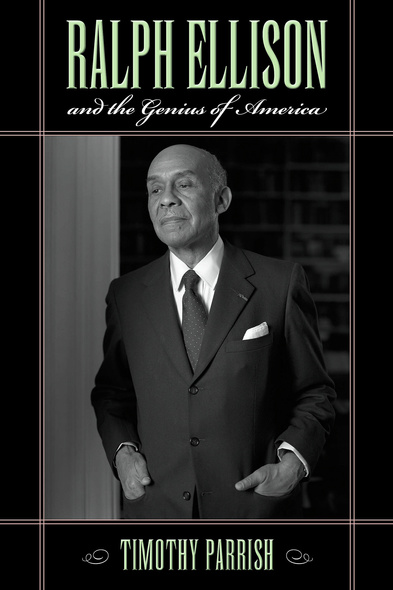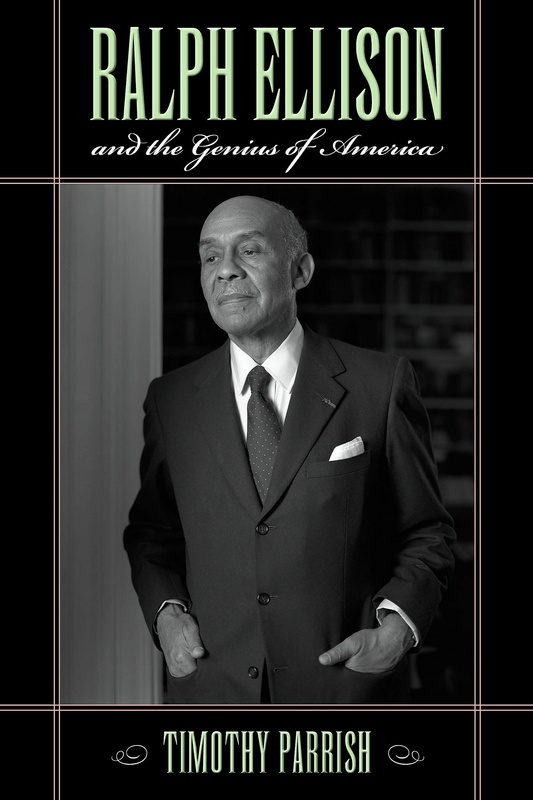Ralph Ellison has long been admired as the author of one of the most important American novels of the twentieth century, Invisible Man. Yet he has also been dismissed by some critics as a writer who only published one major work of fiction and a black intellectual out of touch with his times. In this book, Timothy Parrish offers a fundamentally different assessment of Ellison's legacy, describing him as the most important American writer since William Faulkner and someone whose political and cultural achievements have not been fully recognized.
Embracing jazz artist Wynton Marsalis's characterization of Ellison as the unacknowledged "political theorist" of the civil rights movement, Parrish argues that the defining event of Ellison's career was not Invisible Man but the 1954 Supreme Court decision that set his country on the road to racial integration. In Parrish's view, no other American intellectual, black or white, better grasped the cultural implications of the new era than Ellison did; no other major American writer has been so misunderstood.
Drawing on Ellison's recently published "unfinished" novel, newly released archival materials, and unpublished correspondence, Parrish provides a sustained reconsideration of the writer's crucial friendships with Richard Wright, Robert Penn Warren, and C. Vann Woodward to show how his life was dedicated to creating an American society in which all could participate equally. By resituating Ellison's career in the historical context of its making, Parrish challenges the premises that distorted the writer's reception in his own lifetime to make the case for Ellison as the essential visionary of post–Civil War America.
Embracing jazz artist Wynton Marsalis's characterization of Ellison as the unacknowledged "political theorist" of the civil rights movement, Parrish argues that the defining event of Ellison's career was not Invisible Man but the 1954 Supreme Court decision that set his country on the road to racial integration. In Parrish's view, no other American intellectual, black or white, better grasped the cultural implications of the new era than Ellison did; no other major American writer has been so misunderstood.
Drawing on Ellison's recently published "unfinished" novel, newly released archival materials, and unpublished correspondence, Parrish provides a sustained reconsideration of the writer's crucial friendships with Richard Wright, Robert Penn Warren, and C. Vann Woodward to show how his life was dedicated to creating an American society in which all could participate equally. By resituating Ellison's career in the historical context of its making, Parrish challenges the premises that distorted the writer's reception in his own lifetime to make the case for Ellison as the essential visionary of post–Civil War America.
Ralph Ellison and the Genius of America is both a welcome and illuminating addition to the ever-growing body of Ellison scholarship, a well-researched work that further refines this seminal author's literary, social, and political contribution to the ongoing American experiment in democracy.'—Charles Johnson
'Timothy Parrish's Ralph Ellison and the Genius of America argues for a new understanding of Ralph Ellison's importance to American life and literature. Eschewing what he believes to be artificial divisions between art and politics, Parrish contends that Ellison's 1952 classic, Invisible Man, provided a blueprint for the civil rights revolution that followed. The book's greatest contribution comes in the way that it explicates Ellison's relationships—personal, philosophical, and literary—with Philip Roth, Richard Wright, C. Vann Woodward, Robert Penn Warren, and Martin Luther King, Jr.'—Adam Bradley, coeditor of Three Days before the Shooting: The Modern Library Edition of Ralph Ellison's Second Novel
'In sum, Parrish cuts through the propaganda of discourse and reminds the reader of Ellison's genius. Highly recommended.'—Choice
'Parrish does American literary scholars a great service by bringing C. Van Woodward's controversial Origins of the New South (1951) to bear on Invisible Man. Parrish is truly moving to the 'other side' of Invisible Man by focusing on the myriad of essays and interviews Ellison published in the mid-to-late 1960s, especially 'Tell It Like It Is, Baby' (1965).'—Resources for American Literary Study
'Lamenting that so many biographies of Ellison, Arnold Rampersad's 2007 work among them, reduce the writer to his failure to follow up on Invisible Man and his perceived shortcomings as a 'race man,' Parrish chooses to focus on what Ellison did accomplish. Invisible Man contributed to changes most obviously codified by the Brown decision as the nation finally struggled to come to grips with the second-class citizenship of African Americans. Ellison, the intellectual, was so overwhelmed by the changes he saw—and wrought—in his lifetime that he spent as much time trying to analyze and comment on the changes as he spent on writing more fiction. Parrish draws on archival materials, including Ellison's recently published unfinished novel, Three Days before the Shooting, to examine the intellectual and literary heritage left by Ellison. Parrish contends that 'the true tragedy of Ralph Ellison is not that he never published another novel but that the scope of his extraordinary and arguably singular achievement as an American intellectual still goes unrecognized.' Ellison fans will appreciate Parrish's insights on the writer's place in the American literary and political landscape.'—Booklist
'Genius provides a provocative and eminently readable encounter with Ellison's political vision and legacy in all its unresolved depth.'—MAKE Literary Magazine
Timothy Parrish is professor of English at Florida State University. He is author of Walking Blues: Making Americans from Emerson to Elvis (2001) and From Civil War to the Apocalypse: Postmodern History and American Fiction (2008), both published by the University of Massachusetts Press.






